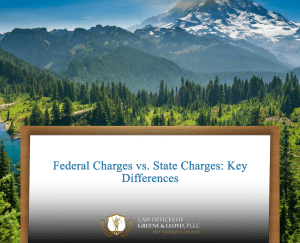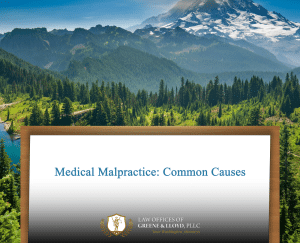## Avoiding Common Pitfalls After a Car Accident in Washington
Experiencing a car accident can be a traumatic and overwhelming event. How you respond in the aftermath can significantly impact your physical, emotional, and financial well-being. Understanding the common pitfalls, or mistakes after a car accident, is essential for ensuring your rights are protected and that you receive the necessary compensation for any damages incurred.
Failing to grasp the serious implications of your actions after an accident can lead to regrettable outcomes. It’s crucial to approach the situation with a clear understanding of your rights and responsibilities under Washington law.
## Understanding Mistakes After a Car Accident
Mistakes after a car accident can take many forms, from negligent behavior to misunderstandings of insurance protocols. The nature of these mistakes often includes failing to exchange information with the other party involved, neglecting to file a police report, or making statements that could jeopardize your claim.
Another common mistake is the tendency to overlook medical evaluations. Even if you feel uninjured at the scene, some injuries manifest later. Without appropriate medical documentation from the outset, you could weaken your case should complications arise.
Furthermore, another significant oversight is not keeping detailed records of the accident. Documenting details such as witness information, police statements, and even your own account of events can prove invaluable down the line when dealing with insurance companies or in legal proceedings.
## Importance of the Topic
The significance of avoiding mistakes after a car accident extends far beyond personal recovery; it affects legal standing, financial compensation, and insurance processes. Understanding what could go wrong helps individuals navigate the complex landscape of post-accident scenarios.
In Washington, the legal framework surrounding car accidents is multifaceted. Insurance laws, liability issues, and personal injury claims all play a role in the aftermath of a collision. By failing to recognize the gravity of your actions, you may inadvertently complicate your case or miss out on rightful compensation.
Moreover, public perception often plays a role in how such incidents are perceived. The misconceptions surrounding fault and injury claims can cloud judgment, leading to panic-driven mistakes that can affect not only the involved parties but also families and communities at large.
## The Legal Framework of Car Accidents in Washington
Washington operates under a “fault” system when it comes to car accidents. This means that the party who is found to be at fault for the collision is financially responsible for covering damages. Understanding this legal framework is crucial to avoiding common mistakes after a car accident.
One of the primary laws at play is the statute of limitations. In Washington, you generally have three years from the date of the accident to file a personal injury lawsuit. Waiting too long to initiate legal action can lead to losing your right to compensation.
Moreover, Washington law emphasizes the importance of insurance coverage. All drivers are required to carry liability insurance that meets minimum coverage amounts. If you fail to report the accident to your insurer in a timely manner or neglect to comprehend how your policy operates, you could encounter delays or denials in claims processing.
## Real-Life Context of Mistakes After a Car Accident
Understanding the practical implications of mistakes after a car accident comes from real-world scenarios. Many individuals incorrectly believe that simply apologizing at the scene can harm their case even if they were not at fault. Such actions can be construed as admitting guilt, complicating liability in the eyes of insurance companies and in court.
In one notable case, a driver involved in an accident neglected to obtain contact details from witnesses, relying solely on the police report. When the accident went to court, conflicting reports led to confusion, ultimately costing that individual settlement opportunities due to lack of corroborating evidence.
Additionally, some individuals may decide to negotiate directly with the other party’s insurance adjuster, thinking they’ll secure a better deal. However, without understanding the full extent of their injuries or damages, they may unwittingly accept an amount that is far below what they would be entitled to if they consulted with an attorney first.
## Practical Steps After a Car Accident
Post-accident actions can dictate the outcome of a claim. First and foremost, always prioritize safety and ensure that emergency services are contacted if needed. Gather vital information at the scene, including names, phone numbers, license plate numbers, and insurance information of all parties involved.
Once you’ve secured vital details, seeking medical attention should be your next priority, regardless of how you feel. Document any injuries and ensure a formal medical report is generated. This can serve as critical evidence later.
Filing a police report is equally important, as your subsequent claims will often rely on the official documentation of the incident. In Washington, having a police report can help streamline the insurance claims process and validate your version of events.
## Avoiding Common Pitfalls in the Aftermath
Common mistakes often stem from a lack of knowledge about how to properly navigate insurance claims. For example, failing to report the accident to your insurer promptly can impact your coverage. Insurers often expect immediate notification, and delays can lead to complications.
Additionally, individuals sometimes downplay their injuries, either out of concern for appearing weak or a misconception that they can handle matters independently. This can have a detrimental impact on claims, as underreporting may result in inadequate medical documentation that fails to reflect the full scope of injuries sustained.
It can also be tempting to settle quickly to avoid the hassle of legal processes. However, rushing into a settlement without understanding the full implications—physical, emotional, or financial—can lead to receiving far less than what you might ultimately be entitled to.
## When to Seek Legal Counsel
In the wake of an accident, determining whether to consult an attorney can be perplexing. Generally, it’s advisable to seek legal counsel if injuries are sustained, if there’s a dispute regarding fault, or if insurance companies are not forthcoming with coverage or settlements.
An attorney can help you navigate the complex nature of personal injury law, ensuring you take all necessary steps to protect your rights and build a compelling case. They can also provide insights into the types of evidence you need to gather and bolster your claim.
Lastly, if you feel overwhelmed by the processes or the emotional toll of the accident, an attorney can provide both legal and emotional support. They can manage interactions with the insurance companies on your behalf, allowing you to focus on recovery.
## Advantages of Legal Guidance Following an Accident
The benefits of having legal representation after a car accident are manifold. A knowledgeable attorney can identify the nuances of your case that you may overlook, ensuring that no detail is left unaddressed.
They are also skilled negotiators, able to advocate effectively on your behalf. Their familiarity with insurance tactics allows them to counter lowball offers and work towards a settlement that reflects the comprehensive damages you’ve experienced.
Moreover, if your case progresses to litigation, having an attorney can be invaluable. They understand courtroom procedures and what is necessary to present a compelling case. The emotional burden of navigating a legal dispute is significantly lightened when you have skilled representation by your side.
## How Greene & Lloyd Can Assist You
Law Offices of Greene & Lloyd, PLLC, stands as a trusted advocate for clients throughout Washington State. With a dedication to ensuring that victims of car accidents receive the representation they deserve, our firm is committed to guiding you through every step of the legal process.
We understand the common mistakes after a car accident and proactively educate our clients on how to avoid these pitfalls. Our team focuses on building a strong foundation for your case through meticulous documentation, strategic negotiations with insurance companies, and a commitment to pursuing maximum compensation for injuries sustained.
Furthermore, our reputation for advocacy and results speaks volumes. By maintaining open communication with our clients, we ensure that you are informed and empowered to make decisions that matter most to your recovery.
## Frequently Asked Questions
## Additional Resources
Exploring additional resources is vital for individuals seeking to avoid the common mistakes after a car accident. Numerous online platforms offer guidance on navigating insurance claims, understanding local laws, and learning about personal injury cases.
Organizations such as the Washington State Department of Licensing provide comprehensive resources about driver responsibilities, insurance laws, and necessary actions for accident reporting.
Furthermore, legal blogs and forums can serve as valuable communities where individuals share experiences and insights. Online support groups may also offer emotional support for those grappling with the aftermath of a car accident, combining legal understanding with personal coping mechanisms.



